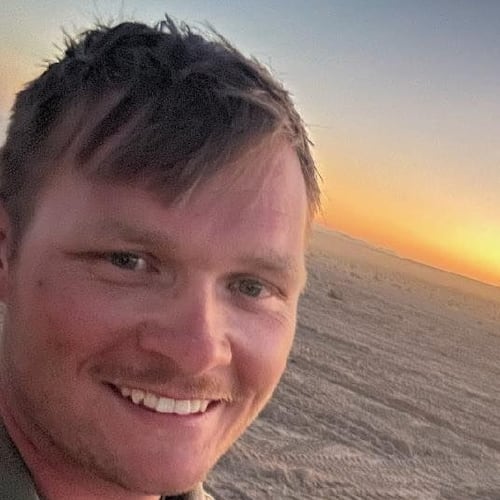Firefighters from Hartsfield-Jackson International Airport who responded to the I-85 fire last month recounted the experience during drills at the airport’s fire training center Thursday.
Airport Rescue Fire Fighting striker units 7 and 8 responded to the March 30 fire that caused a section of the highway to collapse.
The airport firefighters were called in because they're trained to battle extremely hot fires that can reach more than 2,000 degrees, such as those generated by jet fuel, and their trucks carry hundreds of gallons of foam designed to put out such fires.
They got the call shortly after the fire started, but it took about 40 minutes to get through the congested traffic to reach the scene.
By the time they did arrive at around 7:40 p.m., the highway section had just collapsed minutes earlier.
“We had just turned off on Piedmont Road HOV when we heard on the radio communication that it had just collapsed,” said battalion chief Michael Blackwell.
While water sprayed from regular fire trucks can help cool down a fire, the 420 gallons of foam carried by each Atlanta airport truck can kill a fire by starving it of oxygen, according to firefighters.
“Foam actually blankets the fire and starts to take the oxygen away,” said Frederick Reid, one of the six airport firefighters who responded to the scene.
“It will take a long time for the fire to die down with straight water,” said airport fire training captain Eric Kave. “Once we switch to foam, it’s like night and day.”
The airport holds live burn exercises every Thursday through much of the year, allowing airport firefighters to train on putting out fires to fulfill and exceed Federal Aviation Administration requirements.
That’s what causes a black column of smoke rising into the sky near the airport, a sight familiar to many who live or work around Hartsfield-Jackson but that can be jarring to others.
The Atlanta airport fire training center also hosts training for other firefighter units from other jurisdictions and from around the world.
Airport firefighters at each of Hartsfield-Jackson’s five fire stations practice during drills of live burns using jet fuel that generates heat similar to that emitted by the I-85 fire.
The spools of plastic and fiberglass conduit that caught fire in the I-85 fire burned so hot that the bridge they were stored under collapsed.
"Plastics burn pretty hot," Blackwell said.
Credit: David Goldman
Credit: David Goldman
City fire trucks may hold about 20 gallons of foam, while airport fire trucks have more than 20 times that amount. Each gallon of aqueous film-forming foam costs about $2.26 a gallon, and each of the airport’s 10 fire trucks carries nearly $1,000 worth of foam.
Most of the job of airport firefighters involves hazardous materials, emergency medical calls and standing by for some aircraft landings as a precaution.
But Hartsfield-Jackson firefighters have helped other jurisdictions before, such as on landfill fires or chemical plant fires. They also respond to overturned fuel tankers, spraying foam to keep vapors down.
“We all want to go out and do as much as we can to help our comrades,” Blackwell said.
About the Author
Keep Reading
The Latest
Featured






